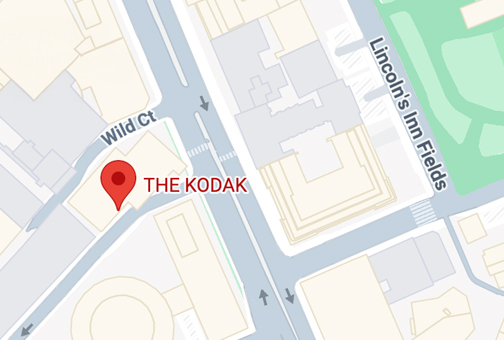New Digital Age regularly asks industry leaders to nominate a Digital Hero and explain what's special about them. Here we reprint the entry from UKOM CEO Ian Dowds, who picks the "relentlessly curious" Douglas McArthur OBE
Who is your digital hero?
Douglas McArthur OBE, UKOM’s former chairman who sadly died in July this year.
What did he do to win hero status in your eyes?
Douglas was relentlessly curious: he was a man who loved the arts in general but especially music, theatre and dance; he was a man who was always open to new ideas and new technologies; and he was a media and marketing professional with few equals.
In a previous role with the Radio Advertising Bureau, he had redefined what a marketing body could do to transform a sector of the media industry; but Douglas was wedded neither to traditional media itself, nor its ways of planning and trading.
Douglas had an uncanny ability to maintain a balanced view: rightfully sceptical of the digital industry’s willingness to indulge in hype and overclaim, Douglas nevertheless also frequently questioned the lack of speed with which traditional media seemed prepared to evolve and was wise to an element of protectionism in their approach.
In short, he was relentless in his pursuit of bluff, bluster and bullshit but was never cynical, he never lost his sense of excitement at the speed at which technology could deliver media opportunities and audiences… and the increasingly rich variety of ways in which it could do it.
Douglas wins hero status in my eyes for a reason best summed up his friend, WPP’s Jeremy Bullmore, a man once described as ‘adland’s greatest philosopher’. Speaking at Douglas’ retirement event in March, Jeremy listed the great number of Douglas’ professional achievements, pointing out that in none of them had there been the slightest shred of self-interest.
How did his heroism help drive digital?
UK Online Measurement was formed in 2009 when the IAB, AOP, ISBA and AOP worked together to deliver an industry body to set and govern the UK industry standard for online audience measurement. UKOM provided a much-needed independent and objective framework that cut through the noise of claim and counterclaim around audience scale and makeup.
Over Douglas’ eight-year tenure as UKOM Chairman he was a much-needed sheriff to what would otherwise have been the wildest of Wild Wests, with online strategic and media planning teams at agencies increasingly able to make informed decisions for their clients, confident of the robustness and objectiveness of the data.
Douglas’s pragmatism meant that he was never looking to ‘boil the ocean’ and he knew that UKOM couldn’t ever be perfect. It did however have to be (his words) ‘good enough’ and his commitment, energy and unwillingness to suffer fools gladly meant that his ‘good enough’ was damn sight better than it might have been.
On Douglas’ watch, UKOM’s industry solution evolved from measuring audiences of websites on desktop PCs to include apps, and video across PCs, tablets and smartphones. He was instrumental in the UKOM RFP for a new contract that will start in 2021 – and this will signal the beginning of a new era for us as we explore the measurement of audio, both streamed and downloaded, and ad campaign audience verification too.
What the biggest challenges in media we need another hero to solve?
The complexity and fragmented nature of media consumption is reflected in the siloed and fractured way the industry measures audiences across all media, including TV, radio and online. Advertisers and agencies are frustrated by the need to fudge media planning issues relating to campaign audience reach and frequency across multiple media and devices.
Integration of UKOM-endorsed data into PAMCo shows that measurement silos can be broken down. The industry needs more willingness to cooperate across other media.
What is your most heroic personal achievement so far in digital?
The fact that I have maintained my sanity (although some may say I haven’t) as I’ve swerved from sales to agency and back; from TV, to online, to print, to industry body… but I guess that’s why it’s called a career.
First published on New Digital Age










